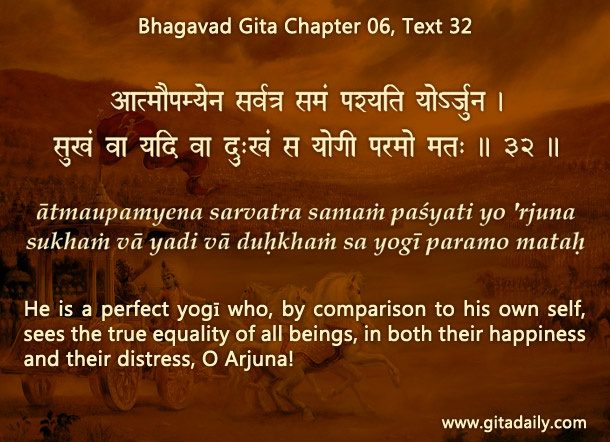Spiritual vision sees people not as philosophical categories but as conscious beings
When we gain spiritual knowledge, our zeal to share it with others may blind us to basic human courtesies. While interacting with people, we may start reducing them to philosophical categories: “This person is an impersonalist; this person is a materialist; this person is an atheist.”
What’s wrong with such reduction? For most people, their philosophy is not their defining identity. They may have heard some philosophical ideas somewhere and uncritically adopted those ideas. When we reduce people to philosophical categories, we start treating them impersonally and judgmentally. And such cold treatment alienates them, hurting their spiritual prospects far more than their philosophical misconceptions.
What if someone has made their misconceived philosophy their defining identity? Still, they are human beings like us; we all share universal human dreams, fears and troubles. Seen from a spiritual perspective, they still remain souls, conscious beings, parts of the divine.
Such an empathic vision characterizes the spiritually elevated. The Bhagavad-gita (06.32) declares that the topmost spiritualists see the equality of all living beings in both their happiness and their distress.
We all want people to treat us respectfully, as conscious beings who will make good choices if we are helped to see how that choice is good. Just as we feel angered and alienated if someone treats us contemptuously, so too do others. Just as we feel more open to hear others if they are courteous, so too do others.
That’s why we need to focus on establishing a human connection with people, not on slotting them within a philosophical categorization. By such empathy, we will sense how spiritual knowledge can be applied in a way that is intelligible and practical for them. And we will discover or devise creative and effective ways of helping them forward on their spiritual evolution.
Think it over:
- While interacting with people who don’t share our faith, how might we misapply spiritual knowledge?
- How can we treat people as conscious beings?
- Do you treat anyone as a philosophical category? How can you start treating them as a conscious being?
***
06.32 He is a perfect yogi who, by comparison to his own self, sees the true equality of all beings, in both their happiness and their distress, O Arjuna!
To know more about this verse, please click on the image
Explanation of article:
https://www.youtube.com/watch?v=1mbXe7j5OqA&feature=youtu.be
Podcast:


Leave A Comment